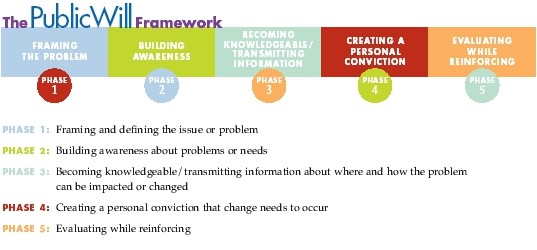A best practice local example of "building public will" by Councilmember Tommy Wells

Those of us who lived in the city in the late 1980s remember how the beverage industry "schooled" environmentalists by successfully vanquishing a referendum that the environmentalists got on the ballot in DC in 1988, calling for deposits on bottles and cans. By making the deposit idea a race issue--that whitey was out to make life hard for the Black Man and Woman--the referendum had no chance. Of course it didn't help that the beverage industry made lots of donations to black churches, which then sermonized against the law...
Last week, Colbert King of the Post wrote a column, "Our racially divided city" about the separation of the races in the city, according to recent polling data written about in the Post. One of the things he pointed out was that African-American support of the recently enacted 5 cent tax on shopping bags ("D.C. shoppers opt for roughing it over paying 5-cent bag tax" from the Post) is much less than that of whites.

Plastic bags. Tuft University photo.
In this week's column, "Tales of snow -- and race," most of the column was given over to Councilmember Tommy Wells, and his explanation of how he reached out to African-American constituencies in crafting the bill and getting support for its passage. From the article:
"I conducted formal presentations at four senior wellness centers about trash in the Anacostia and then fully described my bill, placing a 5 cent fee on disposable bags. The presentations were held at centers in Wards 4, 5, 7 and 8. I engaged the council members for the wards, including Marion Barry, who is a strong supporter of the bill. The vast majority of the participants were black. A group of seniors from one of the centers even came down and testified in support of the bill."
"Finally, environmental degradation is often accepted as the norm in lower income neighborhoods, but I never assumed that black citizens living along the Anacostia found the state of our river acceptable. In fact, many of the older black residents I talked with remember swimming in the river and fishing with their parents, and they still boat on it."
"I take my responsibility to represent all the citizens of a diverse Ward 6 very seriously, and I am disappointed in any racial divide in our city. But as it relates to the bag bill, I believe it was only by seriously engaging black leadership and concerned residents on both sides of the river I was able to pass it unanimously at the Council."
It's a tour de force example of what we might call "Building Public Will" (which is what the Metropolitan Group consulting firm calls it)--building support for and creating change by crafting your message/initiative in a manner which connects to and people's expressed and felt values.From the Building Public Will framework:
1. Framing and defining the issue or problem;
2. Building awareness about problems or needs;
3. Becoming knowledgeable/transmitting information about where and how the problem can be impacted and changed;
4. Creating a personal conviction that change needs to occur;
5. Evaluating while reinforcing.
Labels: change-transformation-innovation, green-environment-urban, planned change, progressive urban political agenda, social change, social marketing



0 Comments:
Post a Comment
<< Home